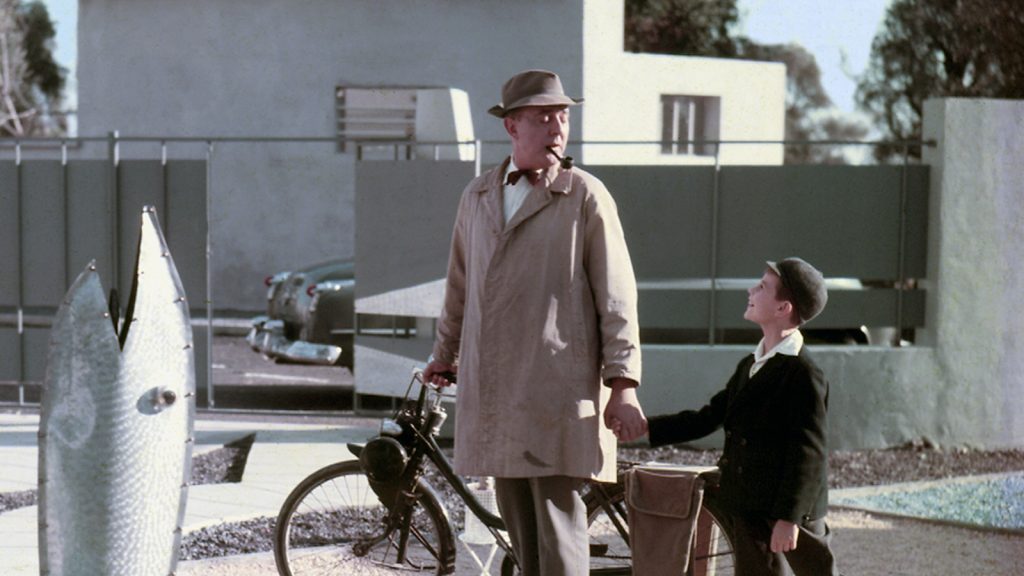
Last Friday I attended, with my brother, a screening of Jacques Tati’s Mon Oncle (1958) at International House. What may appear to be an odd context to this screening, though not after a closer examination, was the fact that David Lynch had selected the film. Lynch, with his reputation for dark and sexually violent films, is often overlooked for his use of slapstick, circumstantially motivated, as comic relief in his films. One can easily see Tati’s influence, for example, in the blocking of the elderly bank attendants in the series finale of Twin Peaks; which also recalls a similar scenario at a hotel lobby in his film Wild At Heart (1990). Lynch’s admiration for Tati is obvious, even if the influence of the latter is somewhat subtle.
The screening also afforded audiences a chance to further appreciate and contemplate the longevity of Tati’s film. Presented to us, the audience, was a 16mm print of Mon Oncle, a cut of the film that had been prepared by Tati himself for distribution in Britain and the United States featuring some brief over-dubbing. The contrast between this version and the now more familiar French language version highlighted the “silence” of the film. In only one or two instances is the dialogue at all necessary. And it is the “silence” of Mon Oncle, coupled with Tati’s satirical mastery, that enables the film to play today as fresh as it did more than fifty years ago.
However, upon departing the screening, one is left to wonder, as my brother and I did, why silent clowning has vanished from the cinema. Considering the relevance and cinematic potency of such master silent comedians of the sound era as Tati, Pierre Etaix, and Jerry Lewis it seems a shame no one has stepped forward to fill those shoes (except for, perhaps, Roy Andersson). Has that particular niche vanished? Has society become too dependent on text and not upon the visual or representative? In this age of high technology, which Tati predicted so long ago, I would assume the opposite would be true. Sadly, the analysis stopped there as my brother and I began discussing how delightful it would be if Albert Brooks were to return to directing and helm a film of silent clowning of his own. Still, the question is an important one: where are today’s silent clowns of the cinema?
This piece was originally published in 2015.
